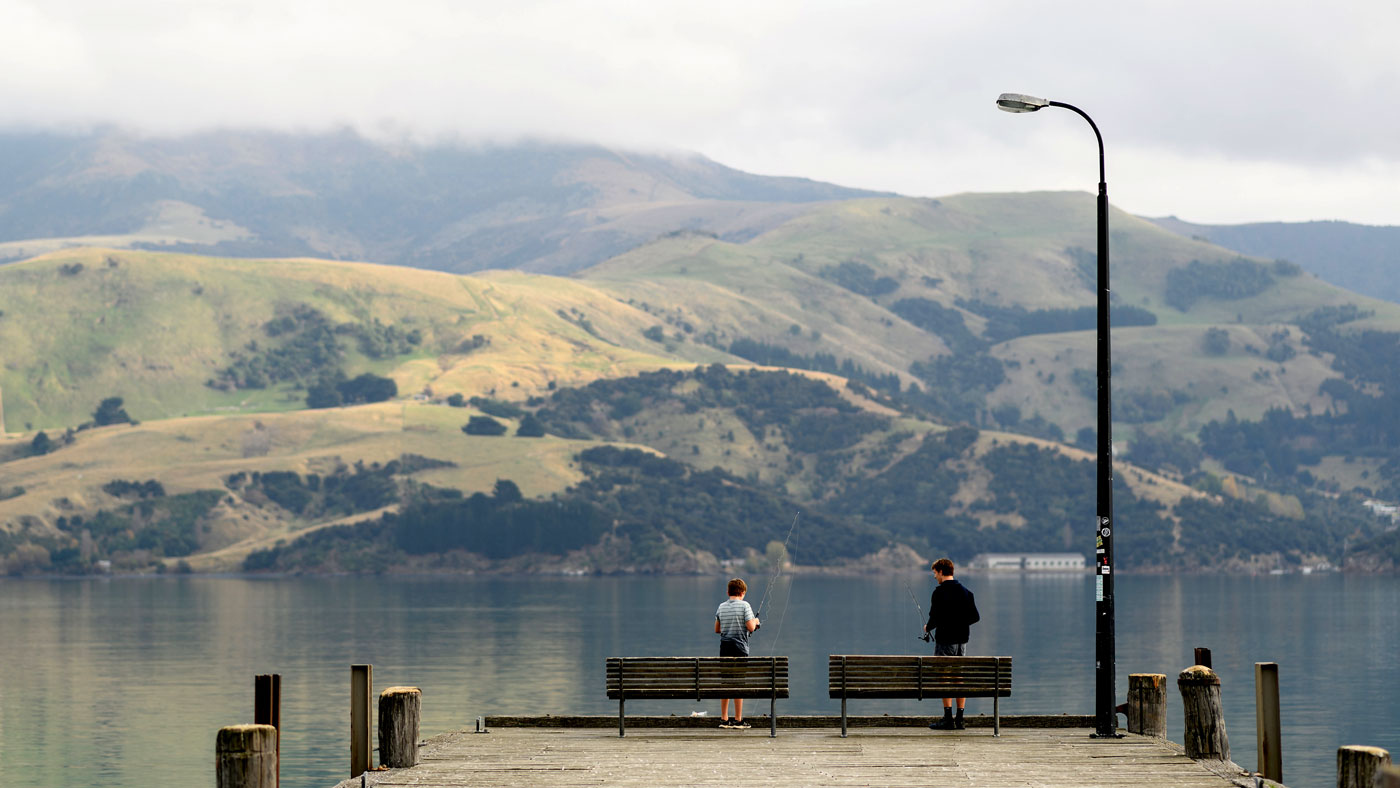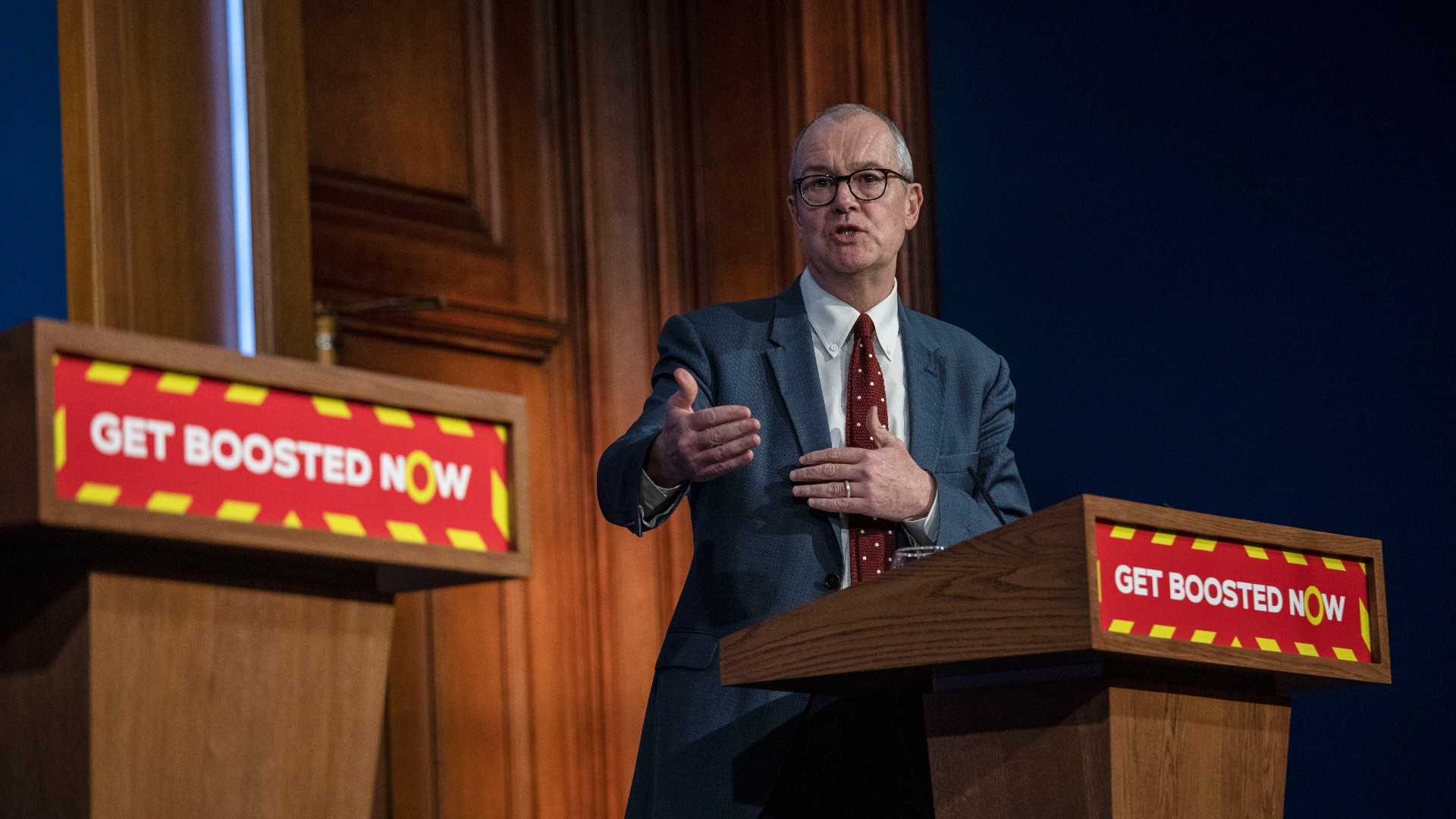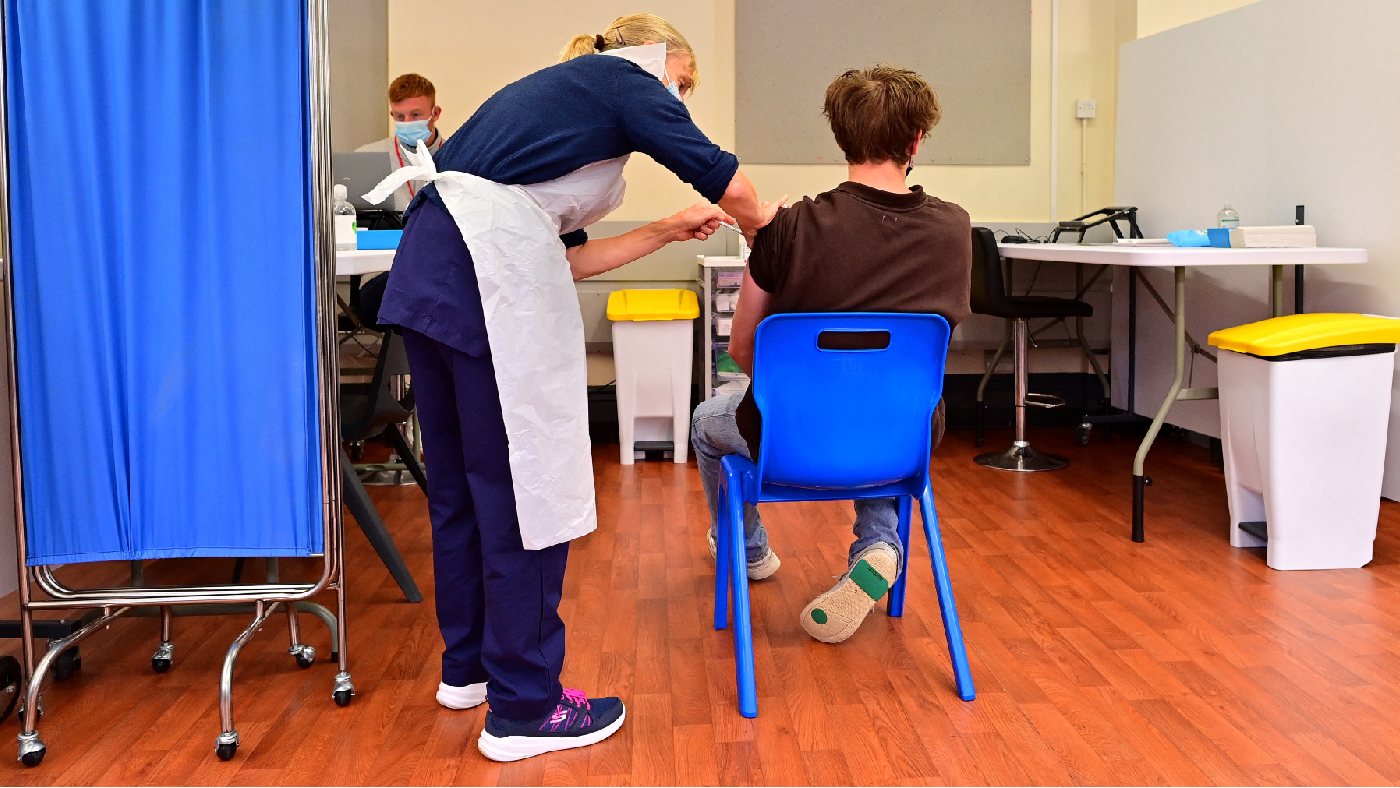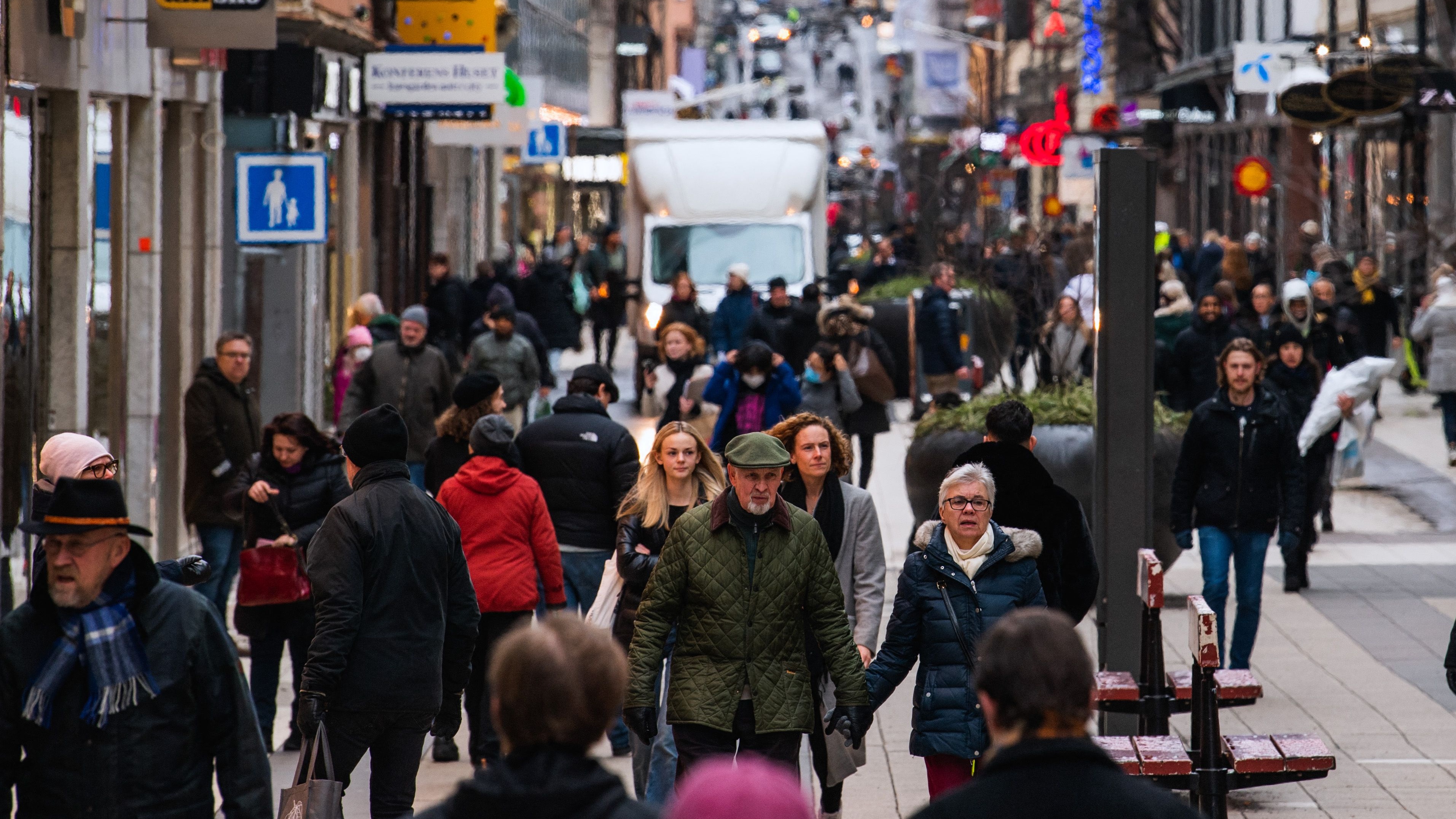How ‘social bubbles’ helped New Zealand beat the coronavirus
British households may also soon be allowed to form a single socially isolated unit

A free daily email with the biggest news stories of the day – and the best features from TheWeek.com
You are now subscribed
Your newsletter sign-up was successful
The UK government is hoping “the New Zealand model” of social interaction in the age of coronavirus will allow British families and friends to see each other again.
Under the so-called “social bubble” strategy, New Zealanders have been allowed to visit a small number of friends, family members or carers throughout their lockdown. The approach has been “credited with helping the country to all but eliminate Covid-19 with only 21 deaths”, says The Times.
Last week Nicola Sturgeon said UK rules could change to allow “meeting up with a small defined group” in a “sort of bubble arrangement”, and official guidance released this week says the government is seeking advice on “when and how it can safely change the regulations to allow people to expand their household group to include one other household in the same exclusive group”.
The Week
Escape your echo chamber. Get the facts behind the news, plus analysis from multiple perspectives.

Sign up for The Week's Free Newsletters
From our morning news briefing to a weekly Good News Newsletter, get the best of The Week delivered directly to your inbox.
From our morning news briefing to a weekly Good News Newsletter, get the best of The Week delivered directly to your inbox.
What is the bubble strategy?
When New Zealand introduced its lockdown on 25 March, Prime Minister Jacinda Ardern urged people to isolate themselves as far as possible. “By and large, we’re very keen that you stay home,” she said. “Stay within your bubble, the bubble of people that you’ll be with for the next four weeks.”
For most people, their bubble was simply who they lived with, but there were exceptions. “Those living alone could also visit and socialise with another person or couple isolating in the same neighbourhood or retirement community as long as neither party interacted with anyone else,” explains Slate. “This was considered a particularly valuable measure for older people, who are at risk of loneliness that affects mental and physical health.”
Members of the same bubble could also provide “company while exercising or shopping”, says The Times.
A free daily email with the biggest news stories of the day – and the best features from TheWeek.com
After four weeks, social bubbles were allowed to expand as long as they remained “small, local and exclusive”, says the New Zealand Herald. One or two people could be tagged on to a household group - either relatives, friends, carers or isolated individuals in need of assistance.
–––––––––––––––––––––––––––––––For a round-up of the most important stories from around the world - and a concise, refreshing and balanced take on the week’s news agenda - try The Week magazine. Start your trial subscription today –––––––––––––––––––––––––––––––
How did New Zealanders respond?
At first, “the country simply got on board,” says National Geographic. “On day one of the lockdown, the streets and highways were empty, the shops were closed, and everyone stayed home.”
As the rules have become more flexible - and as lockdown boredom has grown - a few cracks have started to appear. While restrictions could be “enforced with threats of fines and jail”, says the Irish Times, the system “mostly relied on civic responsibility”.
The majority of people were happy to oblige, says Slate, but New Zealanders “aren’t perfect examples of compliance” and “police said that they had reprimanded more than 500 people for breaching the rules in the first week” after social bubbles were expanded.
Did social bubbles work?
It may be too early to tell, but for one reason or another New Zealand has escaped the worst of the pandemic. By 27 April it had “stopped community transmission of Covid-19”, says the BBC. According to the New Zealand Herald, it now has “only 74 active cases - and just two people in hospital”.
Social bubbles are unlikely to be the sole reason for its success: “New Zealand’s remote location and easily sealable borders played in its favour when the virus broke out,” says the BBC. Travel from China was banned on 3 February and since 20 March almost no-one has been allowed into the country. “But the government has also been praised for the clarity of its messaging.”
Even so, says the New Zealand Herald, “scientists say it’s unclear how transmission of the virus has changed” since social bubbles have expanded and other restrictions have been eased. The relatively short period for which the policy was imposed “may mean scientists never get a full picture of how well” it worked, the paper added.
Even if social bubbles have been a complete success, the crisis will not be over. New Zealand “will need to maintain the total halt on arrivals until a vaccine is developed and widely disseminated,” says National Geographic, “or risk the threat of reinfection.”
Will it work in the UK?
The initial reaction suggests it might encounter some resistance. When Sturgeon floated the idea last week, Sky News said “some family members and friends will have to face tough choices deciding which bubble they want to be a part of”.
And when Boris Johnson confirmed the system could apply across the UK, the Daily Mail said “baffled Brits” would be “left confused over picking their ‘favourite family member’ to join their social bubble”.
In Ireland, too, social bubbles have been proposed - and have met with doubts. “The strategy will only work if people don’t immediately start casting about for loopholes,” says the Irish Times. “Are we ready for that here? The biggest question of all as we move out of lockdown is whether we can trust ourselves.”
-
 Will increasing tensions with Iran boil over into war?
Will increasing tensions with Iran boil over into war?Today’s Big Question President Donald Trump has recently been threatening the country
-
 Corruption: The spy sheikh and the president
Corruption: The spy sheikh and the presidentFeature Trump is at the center of another scandal
-
 Putin’s shadow war
Putin’s shadow warFeature The Kremlin is waging a campaign of sabotage and subversion against Ukraine’s allies in the West
-
 The new Stratus Covid strain – and why it’s on the rise
The new Stratus Covid strain – and why it’s on the riseThe Explainer ‘No evidence’ new variant is more dangerous or that vaccines won’t work against it, say UK health experts
-
 Covid-19: what to know about UK's new Juno and Pirola variants
Covid-19: what to know about UK's new Juno and Pirola variantsin depth Rapidly spreading new JN.1 strain is 'yet another reminder that the pandemic is far from over'
-
 Vallance diaries: Boris Johnson 'bamboozled' by Covid science
Vallance diaries: Boris Johnson 'bamboozled' by Covid scienceSpeed Read Then PM struggled to get his head around key terms and stats, chief scientific advisor claims
-
 Good health news: seven surprising medical discoveries made in 2023
Good health news: seven surprising medical discoveries made in 2023In Depth A fingerprint test for cancer, a menopause patch and the shocking impacts of body odour are just a few of the developments made this year
-
 How serious a threat is new Omicron Covid variant XBB.1.5?
How serious a threat is new Omicron Covid variant XBB.1.5?feature The so-called Kraken strain can bind more tightly to ‘the doors the virus uses to enter our cells’
-
 Will new ‘bivalent booster’ head off a winter Covid wave?
Will new ‘bivalent booster’ head off a winter Covid wave?Today's Big Question The jab combines the original form of the Covid vaccine with a version tailored for Omicron
-
 Can North Korea control a major Covid outbreak?
Can North Korea control a major Covid outbreak?feature Notoriously secretive state ‘on verge of catastrophe’
-
 Did Sweden’s Covid-19 experiment pay off in the end?
Did Sweden’s Covid-19 experiment pay off in the end?In Depth Scandinavian country had lower excess death rate than many but immigrants and elderly bore the brunt